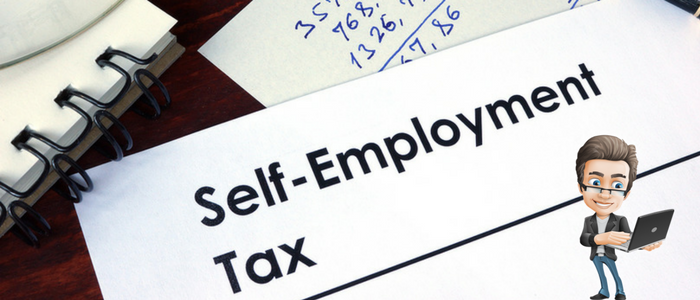Tips to Reduce Self-Employment Taxes
Tips to Reduce Self employment Taxes.Self-employed individuals need to pay self-employment taxes on the top of income tax. It might seem a bit harsh on some individuals. The self-employment taxes help federal programs such as social security and Medicare. So here are some ways by which you can cut down your tax liability if you are self-employed.
Corporation
In the event that you have created a corporation or limited liability company, you can benefit as a self-employed individual. If you proceed with an S Corp election, you might be able to reduce your tax liabilities under self-employment taxes. S Corp allows you to pay yourself from the profits and distribute the rest among shareholders or other employees. It also allows you to draw a reasonable amount from the total earning as salary. If the amount exceeds certain limits, it would come under income tax and not employment taxes.
SE Declaration
As per the guidelines set by the IRS, anyone making more than $400 out of self-employment is liable to pay taxes and has to file tax returns. You must include a Schedule SE with your tax returns which help you calculate how much self-employment tax you owe to the government. There is a small catch over here. When you fill out the Form 1040, as per IRS guidelines you can adjust your income by deducting a portion of your self-employment earnings. This clause lets you reduce your self-employment tax liability between 50-57% depending on your earnings.
Business Expenses
IRS has a few clauses that can help self-employed individuals to reduce their tax liabilities. One of them is declaring expenses. You can declare various business expenses if they helped you in any form to continue with your work. Of course, you cannot include leisurely trips as part of the expenses. Money spent on items such as advertising, office space, supplies and business related travel qualify for this. Let’s assume your taxable income is $40000 and you went on a business trip which accounted to $5000, your net taxable income would be $35000.
Health Insurance
This is one of the most visible advantages of self-employed over normal employees. Self-employed individuals can claim their entire health insurance costs. As long as you had some profits for the year, you can go ahead and claim your health insurance in full. When you deduct the health insurance amount, your taxable income for the specific year reduces, thereby reducing your total tax liability.
Deferred Income
Deferring your income to a later date is another smart way of reducing your tax liabilities for a specific year. Don’t worry, we are not asking you not to get paid at all, rather defer the payment depending on the timings. Since you are responsible, you can decide when you want the payment. Deferring the payment by a few days or weeks might enable you to pay lower self-employment taxes. For an example, if due to $3000 you are getting into the next bracket of tax, you can defer the same for the next month, provided the payment is really close to financial year end. Of course, you need to access if you need the money or it can wait for some time or not.
Home Office
If you use your home for your business purpose, you can deduct some amount from your taxable income on the front of expenses such as utilities, any rent paid or insurance of home. In fact, IRS has a simplified process that you can benefit from.
Measures mentioned above should help you as a self-employed individual to understand and brings down your self-employment tax liability. bulgari copy
omega watches
fake Breitling


Recent Comments